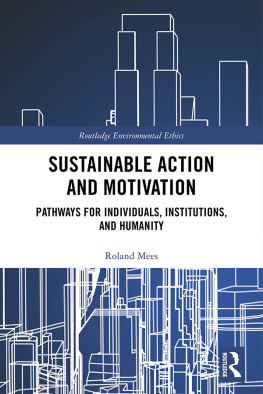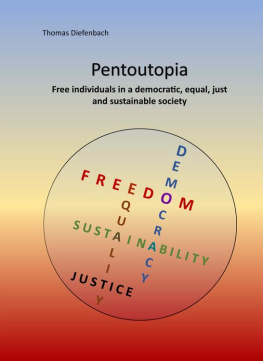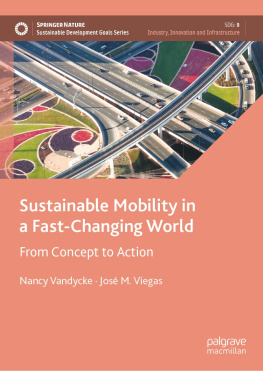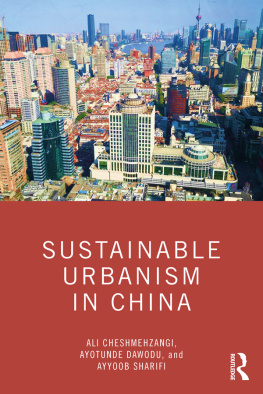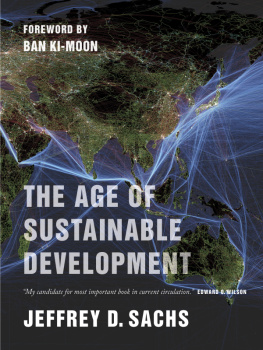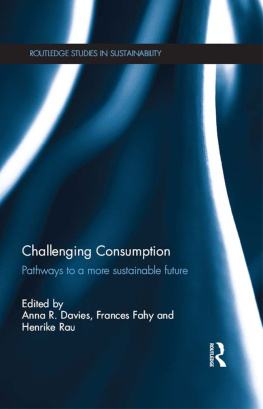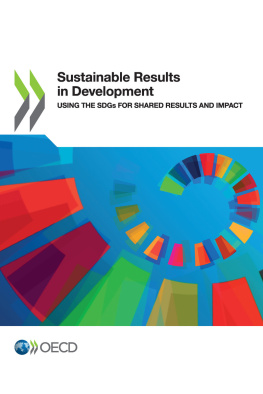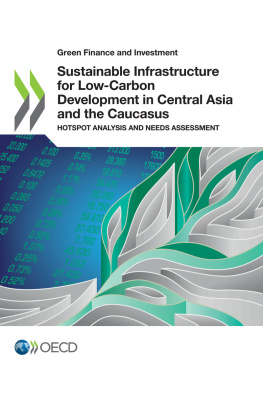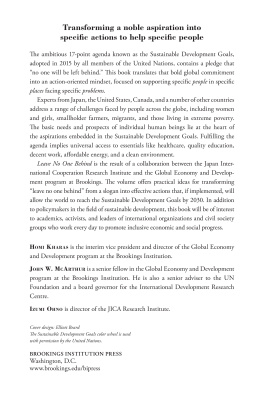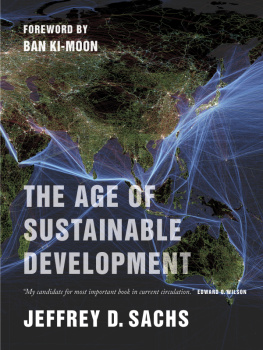Table of Contents
Guide
Print Page Numbers
Sustainable Action and Motivation
Sustainable Action and Motivation proposes individual competencies and institutional policies that can help overcome the motivational hurdles that hamper sustainable action.
Following the Paris Agreement of 2015 and the UN Sustainable Development Goals, the political momentum urgently to begin the drastic reduction of greenhouse gas emissions has increased significantly. Affluent, high-income OECD countries are expected to take the lead in the global transition to a low carbon society. Given this, we need a better understanding of the motivational problems that people in affluent countries face with acting sustainably. This book investigates the above questions by analysing three fundamentally different perspectives: individuals and their motivation to act sustainably; institutions who take responsibility for issuing policies that steer us towards taking sustainable action; and humanity, each individual member of which ought to understand his or her non-sustainable behaviour in relation to the continued existence of the collective of human beings.
Using theories from empirical psychology and a phenomenological approach to the research, this book will be of great interest to students and scholars of practical philosophy, psychology of motivation and environmental psychology, as well as policymakers looking for ways to implement effective policies that encourage pro-environmental behaviour.
Roland Mees studied fundamental mathematics at Utrecht University, business administration at the Rotterdam School of Management (Erasmus University), and philosophy in business at Utrecht University. Alongside his full-time job at ING, he obtained his PhD in 2017 at the Ethics Institute of Utrecht University, where he is an affiliated researcher. Mees is a director of Sustainable Finance at ING, based in Amsterdam, The Netherlands.
Routledge Environmental Ethics
Sustainable Action and Motivation
Pathways for Individuals, Institutions, and Humanity
Roland Mees
For more information on the series, please visit www.routledge.com/Routledge-Environmental-Ethics/book-series/ENVE
Sustainable Action and Motivation
Pathways for Individuals, Institutions, and Humanity
Roland Mees

First published 2020
by Routledge
2 Park Square, Milton Park, Abingdon, Oxon OX14 4RN
and by Routledge
52 Vanderbilt Avenue, New York, NY 10017
Routledge is an imprint of the Taylor & Francis Group, an informa business
2020 Roland Mees
The right of Roland Mees to be identified as author of this work has been asserted by him in accordance with sections 77 and 78 of the Copyright, Designs and Patents Act 1988.
All rights reserved. No part of this book may be reprinted or reproduced or utilised in any form or by any electronic, mechanical, or other means, now known or hereafter invented, including photocopying and recording, or in any information storage or retrieval system, without permission in writing from the publishers.
Trademark notice: Product or corporate names may be trademarks or registered trademarks, and are used only for identification and explanation without intent to infringe.
British Library Cataloguing-in-Publication Data
A catalogue record for this book is available from the British Library
Library of Congress Cataloging-in-Publication Data
Names: Mees, Roland, author.
Title: Sustainable action and motivation : pathways for individuals, institutions and humanity / Roland Mees.
Description: Abingdon, Oxon ; New York, NY : Routledge, 2020. | Includes bibliographical references and index.
Identifiers: LCCN 2019029814 | ISBN 9780367189877 (hardback) | ISBN 9780429199677 (ebook)
Subjects: LCSH: Sustainable developmentPsychological aspectsCase studies. | Environmental psychology. | Moral motivation.
Classification: LCC BF353.5.S87 M33 2020 | DDC 155.9dc23
LC record available at https://lccn.loc.gov/2019029814
ISBN: 978-0-367-18987-7 (hbk)
ISBN: 978-0-429-19967-7 (ebk)
Typeset in Bembo
by Wearset Ltd, Boldon, Tyne and Wear
Contents
Why would anyone write a book with the purpose of promoting sustainable action when human beings seem incapable of changing their non-sustainable behaviour? Along with Dale Jamieson (2017) and many others, I could have taken a pessimistic stance on the probability that humans will manage to keep global warming below 2 C, let alone 1.5 C. I could have carried on living comfortably, well above a minimum threshold of wealth, with my family, job, friends, and musical hobbies, leaving the problem of climate change to people who will live after me. However, I would then not have paid attention to a question to which I increasingly felt that it was up to me to respond.
When I was in the initial phase of my PhD project, I spoke to many colleagues, friends, and family members about questions of intergenerational justice. We discussed whether our moral obligations towards future generations would motivate us to, for example, eat less meat, leave the car at home, or take fewer flights. To my surprise and dismay, I often received an answer along the lines of: But Roland, whats in it for me? It seemed that people like me, who are living above a minimum threshold of wealth, would make their commitment to take sustainable action dependent on something they would get in return. I conjectured that, in other words, people in affluent countries who are asked to lower their luxury emissions would mainly do this out of self-interest. In this book, which builds on my dissertation, I investigate as a philosopher what is behind the Whats in it for me? response. The motivational difficulties of people who want to act sustainably are my focus.
The goal of the book is to give you a glimmer of hope. The motivational problems for individual agents taking sustainable action seem more severe than for people who take another morally complicated action. Moreover, institutional sustainable policies may become easily frustrated due to severe inaction and stalemate among the stakeholders. Yet there are pathways open to us as individuals that could help to strengthen our capabilities to act sustainably. We can make use of scientific research to propose institutional sustainable policies that can be defended by politicians in constitutional democracies. Finally, we can reach a level of self-knowledge in which we integrate our understanding of who we are as a human being with our commitment to make a significant contribution to meeting the challenge of climate change.
At this point, I want to thank those who have supported me during the years of writing this book. First, I am most grateful to my PhD thesis advisors, Joel Anderson and Marcus Dwell. They have supported me during all the stages of the project. I thank Joel and Marcus for sharing their extensive philosophical experience with me and stimulating my development as a scientist.
My gratitude goes out to Dieter Birnbacher and May Thorseth, who, in addition to sitting on my Review Committee, invited me to write a paper for the volume they edited (2015). This paper turned out to be a cornerstone for the project of writing this book. I am grateful to Christoph Baumgartner, Frans Brom, Marc Davidson, Ingrid Robeyns, and Linda Steg, who also sat on my Review Committee. Finally, I am grateful to Rutger Claassen, Boudewijn De Bruin, Liesbeth Feikema, Jesse Mulder, Dirk Schoenmaker, and the members of the colloquium at the Ethics Institute of Utrecht University, who, at various stages of the project, encouraged me and shared their open and candid feedback.

